There is a tendency among political commentators and analysts to put too much weight on the outcomes of local elections when a general election is looming. This is understandable – you don’t want to risk getting bogged down in the detail to the point where it becomes dull for those who just want a broad overview.
But that detail is pretty crucial, and without it you lose a lot of the colour. For example, after the locals the BBC highlighted that, if you were to apply these results to a national election, Labour would have a 9pt lead. Two days later, polls were showing Labour at 12% or even 19% ahead. Local elections do not predict general elections. They just don’t.
With the dust now settling, I’ve looked at some of the key trends and outcomes and what to look out for in the year ahead to the next general election. Because there’s so much to say, I’ve given you a quick snapshot – but you can click the link here, if you want to go a little further.
1. This election will not predict the general election.
Local elections do not predict general elections – even if they’re on the same day:
- In 1997 (same day): Labour won a historic landslide at the General Election, but only gained 1 councillor in the locals.
- In 2010 (same day): The Conservatives and Lib Dems end up in Coalition Government, but both lost 100 councillors each. In contrast, Labour lost the General Election but gained 417 councillors.
- In 2019 (6 months apart): The Conservatives lost 1,300 seats at the local elections, but gained an 80 seat majority in Parliament 6 months later.
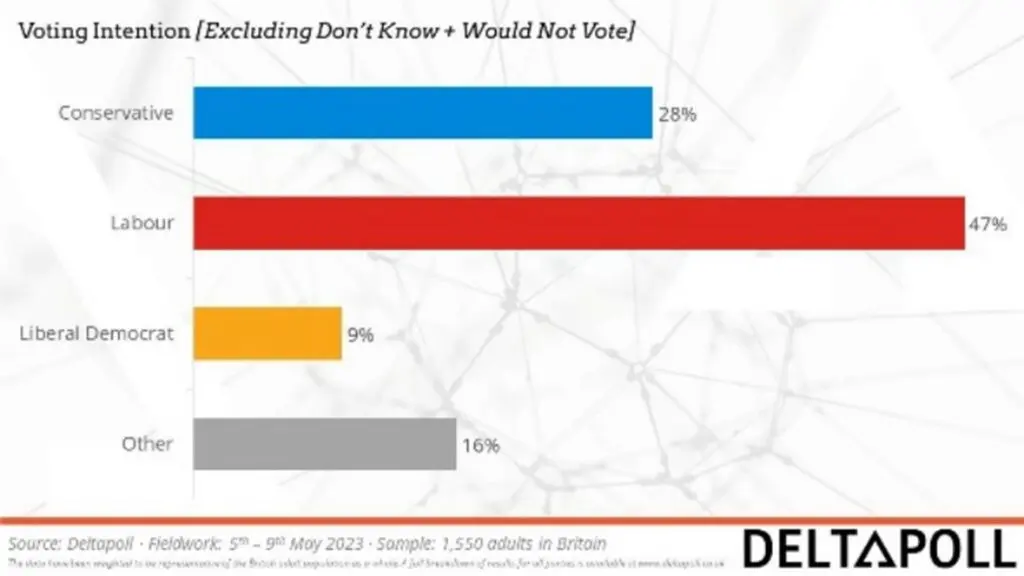
Plus, polls out just days after the elections give Labour a 12-19% lead still – despite the BBC suggesting the locals show a 9% lead.
Ultimately we’re just too far away from the elections to know – after all, a year is 52 long times in politics.
2. The Tories’ defeat is greater than you think.
These results shouldn’t be seen in isolation. It’s not just the 1,000 the Conservatives lost this year – they also lost 1,300 the last time these seats were up. That’s 2,300 councillors lost in just two election cycles.
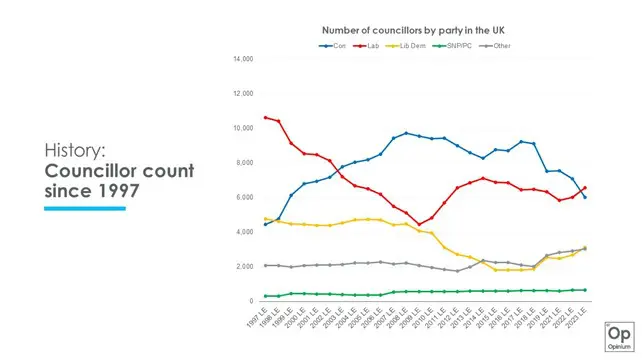
Plus, they’ve lost old-school Tory seats like in South Oxford (down 33 seats to 1 in just 8 years) and Folkestone (down 22 seats to 5 in 8 years)
And Labour absolutely did better and they’re now the biggest party in local politics. In 2019 (the last election for these seats) they lost 84 councillors, this time they gained 537. Most of the Tory losses in 2019 were to Liberal Democrats, Greens and Independents.
3. Rise of the alternatives (and tactical voting).
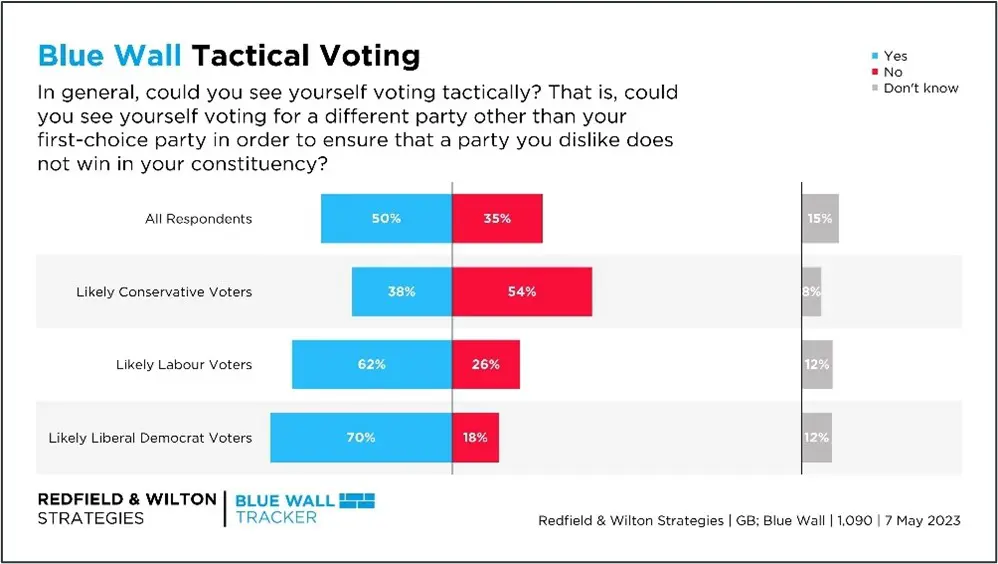
The Lib Dem and Green rises are a proper trend now – this is the fifth set of elections in a row in which they’ve made gains. Between them, they now have 20% of all council seats, up from 16% last year.
Plus, resentment on the left will mean more tactical voting to oust Conservatives in key areas like the Blue Wall. Polling after the election shows that 62% of likely Labour voters and 70% of likely Lib Dem voters would consider voting tactically to ensure the party they dislike (let’s face it, the Tories) lose. Only 38% of Tories would do the same.
4. Housing will be a headache for all parties because of their own local NIMBYs.
There has been a 557% increase in the number of councils with No Overall Control in 10 years – and it gets bigger every year. But each one is different, so the specific party dynamics in those areas is more important to look at.
Housing (or a lack thereof) has already been cited by some as a reason the Conservatives lost seats. But the rise of local NIMBY parties might not help matters: Lib Dems and Greens are notorious NIMBYs at a local level. Interestingly, you’re statistically more likely to see a planning application granted in a Tory or NOC council than in a Labour one (according to 2021/2 figures – the most recent available).
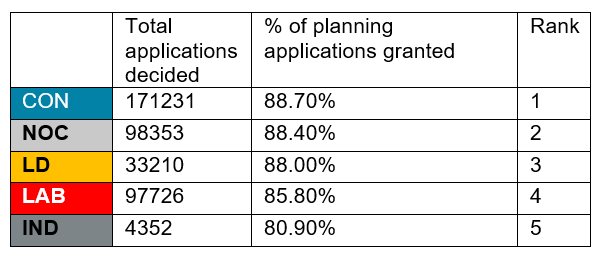
5. It’s the ‘don’t knows’ and the switchers you need to watch out for.
Rather than focus on these local election results, it’s the ‘don’t knows’ you need to watch. Most polls exclude them, but they’re really the ones who will decide the next General Election.
About 18% of people haven’t decided who they’ll vote for: our polling from March 2023 shows that 39% of these ‘don’t knows’ voted Tory in 2019. If they went back, it would add 7% to the Tories’ polling numbers. The ‘don’t knows’ are all to play for – and winning them over is crucial.
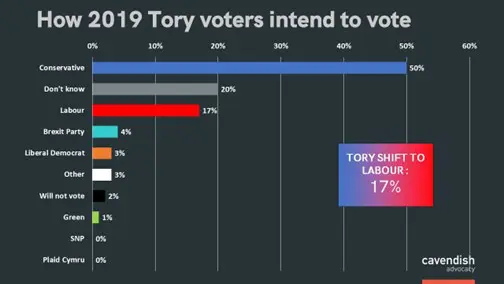
As for the switchers, 17% of 2019 Tory voters now say they’d vote for Labour and, importantly, 20% of those who didn’t vote in 2019 say the same. Crossing that line is a big step – it will be very hard for the Tories to win these back.
If you would like to find out more about the key trends and outcomes of the recent local elections or further discuss the year ahead, contact us here.




